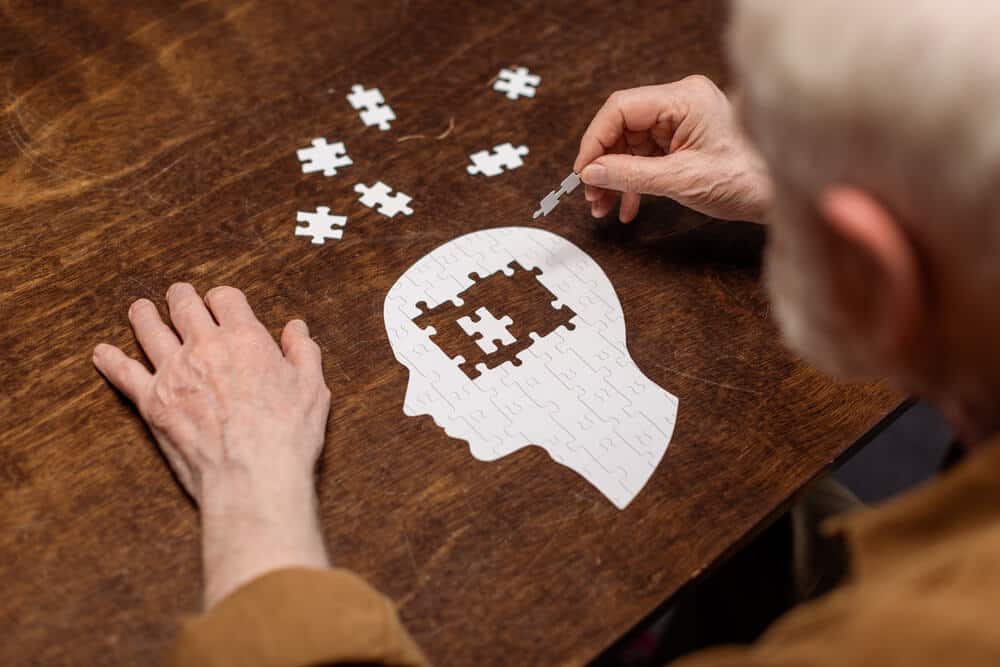This article was originally published on HuffPost.
It’s a familiar scenario for anyone over 35: You walk into a room to get something, and you suddenly can’t remember why you are there. Or you tear the house apart, already late for a meeting and searching frantically for those keys you know you set down on the kitchen counter. Or that colleague, the one smiling at you with familiarity — you know his name, it’s on the tip of your tongue, but you just can’t seem to access it. Ah well, it’s to be expected. You’re not as young as you used to be, and your memory is fading. It’s all perfectly normal, and it happens to the best of us. Or does it?
I used to believe that I had a terrible memory and that it was only getting worse, but I’ve come to realize that maybe this isn’t exactly the case. In fact, my memory seems better than ever. Or perhaps I can just see that it was never as bad as I thought it was. I see now that it was one of my limiting beliefs, one of the stories I believed about myself that simply wasn’t true.

Decreasing memory ability is so much the predicted pattern, the accepted norm, that it almost becomes a self-fulfilling prophecy. We blame our failure to remember something on growing older, when there may actually be a number of other factors at play. Factors that we could, with a little diligence, overcome.
Human memory is infinitely complex, and even neuroscientists don’t understand exactly how it all works. What is clear is that there are many processes involved in both storing and retrieving memories and that the act of remembering something is a brain-wide function. While there are some functions that decline with age, overall ability actually stays strong for most people even into their 70s. So why does it seem like we have more and more trouble remembering stuff?
One overly-simplified explanation is that as we get older, we have more and more stuff to remember. We have longer histories with more memories to encode, we have more daily tasks, more friends, more acquaintances, more colleagues, and there simply isn’t enough brain space to remember it all. But the brain isn’t built like a filing cabinet with limited space or a computer with only a certain amount of RAM. It is far more complex and more flexible in its processes.
The myriad daily tasks, however, may play a large role in our absentmindedness. Quite simply put, the many distractions of daily life keep us from remembering it as well as we should. Our attention is divided between kids, jobs, home ownership and all the other responsibilities we take on as adults, and such distractedness plays a large part in disrupting memory function. If your kids are clamoring for a snack just as you arrive home and put down your car keys, the encoding of that memory gets disrupted. So it isn’t really that you “forgot” where they are at all… you just never actually had that memory in the first place.
And many of us pride ourselves on being great at multitasking, but the truth is that trying to do several things at once means none of it will get done very well. Your short-term memory gets disrupted, and that means some important pieces may be entirely missing from your long-term memory. For something to transfer from your immediate memory to your working memory, you must repeat it within the first 30 seconds, and then you must repeat it again for it to really stick. If you are distracted between tasks, you likely aren’t doing the necessary repetitions to properly encode the memories. Recent studies also indicate that as we get older, our ability to filter out distracting influences actually decreases, making it all the more important to concentrate on the task at hand. It’s a tough lesson to learn.

So how is it that I can say my memory seems to be improving? Well, for one thing, I simply stopped telling myself that my memory was bad and that it was getting worse. We are so conditioned to believe our memory worsens with passing years that, as new research suggests, it truly is the proverbial self-fulfilling prophecy at play. When we stop giving this idea so much credence, we realize just how good our memories still are. My friend Amy Africa, e-commerce expert and neuromarketer, told me that every person has about a dozen of what she refers to as “memory gadgets,” or different areas of the brain in which different memories are stored. Numbers, for example, are stored in a completely different place than faces. And since I’ve always known I have an incredible memory for numbers, I realized that my memory wasn’t getting worse at all. Seeing that the opposite was true gave me a lot more confidence in my own abilities to remember.
I also chose to start focusing my attention on the things I wanted to remember. Much of my self-proclaimed bad memory for names and faces was in large part because I let myself get overwhelmed by the sheer number of people I was meeting at conferences and other functions. But once I realized that if I minimized distraction when I was taking in a new person’s name and made sure to repeat it to myself, I had a much better chance at remembering it later. I still can’t remember every single person I meet at a conference, because there are just too many of them. But if it’s someone important, if it’s a potential client or a great networking contact, I focus, and then I remember. It’s also easier to remember things when you already know a little bit about the subject at hand, so one simple trick is to connect what you’ve just learned with something you already know.
Our brains are designed primarily for our survival, and as such, they need to be efficient. We simply cannot remember everything that goes on around us on a daily basis. There are a great many ways to work at maintaining and even improving your memory functions as you get older, and there’s no question that both mental and physical stimulation keep your brain sharp. But the simple truth is that our memories may not be fading as quickly as we think. And if we focus on that truth, we may find ourselves capable of remembering a great deal more than we thought.
Now where did I put my keys?





